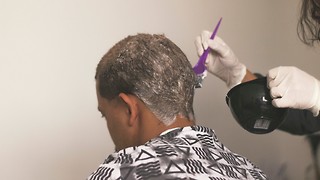‘Me & My N*gga’s <3′: the Appropriation of Black Culture
Hana Gudelis calls out our cultural appropriation of the N-word
I have loved rap music since the beginning of my adolescence. Along with all of my friends, no matter their race or ethnicities, I listened to artists like Kanye and The Notorious B. I. G. religiously. Because of this, I never considered that some people would see this genre of music as representative of an exclusive culture. When Azaelia Banks, a black rap artist, claimed that Iggy Azalea, a white rap artist, was appropriating black culture and was taking part in something that didn’t belong to her, I was outraged. I thought no culture should be exclusive to a certain race of people.
What caused me to revisit the subject was a Facebook picture posted by Azalea with the caption “Me and My N*gga’s <3”. In it Azalea poses with artists Drake, B.o.B and T.I, all of whom are black. Of course, I don’t believe that Iggy Azalea considered the negative connotations of the n-word when she included it in the caption of her picture. After all, she is involved in an industry where many of her contemporaries frequently use the term, regardless of its negative connotations, and it is therefore understandable why she felt a right to do the same.
In popular culture today, the word is used casually and frequently from Internet memes to song lyrics and film dialogue, in doing so it has taken on an entirely new meaning. A key example would be black artist A$AP Rocky calling white artist Skrillex his “n*gga” in their (truly horrendous) song ‘Wild For The Night’. The word is clearly no longer always associated with a specific race. In fact, growing up listening to rap and being exposed to the n-word frequently by my favourite artists, I started to lose touch with its historical significance and felt comfortable to start using it too. In all my favourite music, the word was being used to mean ‘mate’ or ‘bro’ and, just like any other susceptible teenager, I would mimic what I heard from artists I loved. I realize in hindsight how wrong I was. The bottom line is that even though the word has developed a new meaning, out of respect for anyone that has been affected by the word’s brutal and discriminatory origins, I do not have a right to use it.
This is where I do believe that Azaelia Banks has a point. Iggy Azalea has the right to be included in hip-hop culture just as successfully as Eminem, another white rapper, has, but that does not mean she should be able to use a term associated with years of hatred and persecution that never affected her personally or culturally. Black people who intend to use the n-word now in a completely non-offensive manner do not pave the way for people of other races to do the same.
When a song like ‘N*gga’s in Paris’ peaks in the top 10 of the US Billboard Hot 100 and UK Singles Charts, and is incessantly blasted from radios and in clubs, it is understandable why teenage listeners of all races would feel little worry about using the term. After all, music unites people and should transcend race. But by using a word that can only be used by a certain group of people, it can cause cultural alienation for those who identify with the music and are yet excluded on the basis of their race. I believe that there are many problems with anyone using this word.
I appreciate the need for many black artists to reclaim such a hateful word, to transform and defy its stigma and history and make it something empowering. The problem, however, with using the controversial word frequently in popular culture is that it creates a grey area for what is appropriate.
One could draw upon the example of the word ‘faggot’. While I know some gay people feel comfortable using the word to describe themselves and others, I believe normalising a word associated with hate and discrimination can only have negative consequences. Those who have suffered from being the butt of jokes and hate crimes, who have had the word spat at them by bullies, would most likely not want to perpetuate its use. Many believe that the same attitude should be attributed to the use of the n-word too.
Titi Odusanwo of Fitzwilliam College, a student activist involved with the 'Ain't I a Woman?' initiative, spoke to me powerfully about why she feels the historical significance of the n-word is too brutal for her to use it. “I refrain from using the words 'nigga', 'negro', 'nigger'... I just don't. I accept that some things just can't be redefined.” Titi explained to me that she felt using the word in a colloquial way undermined the struggle of those who heard ‘n*gger’ before being lashed, raped, lynched, tarred, feathered and murdered. Nothing justifies the use of such a hurtful word. “Whether I am white, black or indigo, I didn't go through those atrocities, I didn't suffer at the hands of a slave master and my sense of empathy is limited. Using the word would be purporting that I understood their struggles, their pains, their hardships -but I don't.”
I question whether anybody should be able to use the n-word, regardless of his or her race. Music is a powerful thing. It plays vital roles in different cultures. Hip-hop originated in 1970s New York from those who were marginalized as a result of racial discrimination. It was a way of turning pain into a new form of art. Music should not be exclusive to any one group, race or culture, but the histories of the people behind the music must not to be forgotten. All listeners and artists of hip-hop today, black and white, need to be mindful and respectful of the origins of the genre.
 Features / The community Cambridge accommodation creates (and doesn’t)9 August 2025
Features / The community Cambridge accommodation creates (and doesn’t)9 August 2025 News / Trinity sells O2 Arena lease for £90m12 August 2025
News / Trinity sells O2 Arena lease for £90m12 August 2025 Features / Incoming freshers and their hopes, fears and expectations for Cambridge 12 August 2025
Features / Incoming freshers and their hopes, fears and expectations for Cambridge 12 August 2025 Lifestyle / An ode to college accommodation11 August 2025
Lifestyle / An ode to college accommodation11 August 2025 News / Local group objects to ‘bulky’ new Christ’s library13 August 2025
News / Local group objects to ‘bulky’ new Christ’s library13 August 2025








